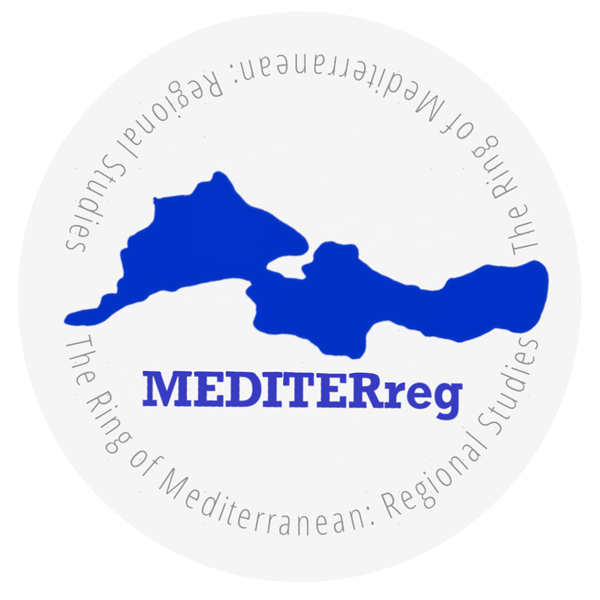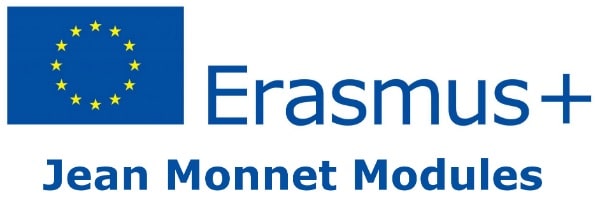The ring of Mediterranean: Regional Studies


101047919 — The ring of Mediterranean: Regional Studies — ERASMUS-JMO-2021-HEI-TCH-RSCH (AGREEMENT NUMBER – 101047919 — The ring of Mediterranean: Regional Studies)
Project acronym: MEDITERreg
Project duration: 1 March 2022 – 28 February 2025
EU funding instrument: EU-funded ERASMUS+ Programme, Jean Monnet, with the support of the European Neighbourhood Instrument
Target groups: ONU students and exchange students, students, young researchers, and professionals from the EU, Mediterranean countries and Ukraine, group of beneficiaries includes ONU teaching staff members, and the broader teaching community in Ukraine and Mediterranean countries
Grant holder: ODESKIY NACIONALNIY UNIVERSITET IMENI I. I. MECHNIKOVA
Project сoordinator: email: This email address is being protected from spambots. You need JavaScript enabled to view it.
Project goals and specific tasks: Revised course “Country Studies through Language”; new courses “Regional Studies”, “EU policy towards Mediterranean region”, “Regional Politics and Security in the Southern and Eastern Mediterranean”, and “Migration Process in Mediterranean”; new MOOCs “Regional Studies”, “EU policy towards Mediterranean region”, “Regional Politics and Security in the Southern and Eastern Mediterranean”, and “Migration Process in Mediterranean”.
Activities:
- Project coordination meeting: Kick-off meeting, distribution of roles, and creation of Quality Assurance Board Discussion on Module logo and short description for website. The module online platform will be hosted at ONU domain, and continuously and systematically updated until the end of the project.
- Curriculum development: Development of four new courses “Regional Studies”, “EU policy towards Mediterranean region”, “Regional Politics and Security in the Southern and Eastern Mediterranean”, and “Migration Process in Mediterranean”
- Quality Assurance meeting: Discussion of QA board’s report and implementation of QA board’s suggestions. The meetings will be held twice per each year of the project.
- Master classes: Preparation, dissemination, and implementation of eight master classes involving scholars and civil society representatives (video taped).
- One-day awareness seminars: Eight awareness seminars at partner organizations that will ensure dissemination and engagement with the didactical materials and practical teaching experiences collected and developed within the framework of the proposed module by the partnering experts involved in the project, as well as a wider audience of colleagues. The seminars will therefore ensure active and full-scale usage of the developed didactic materials not only on framework of the MOOCs, but also other courses and activities offered by the partner universities.
- MEDITERreg Graduate Conferences: Preparation, dissemination, and implementation of 1-day MEDITERreg Graduate Conferences for master’s students and early stage researchers.
Expected results:
- “Country Studies through Language” course implementation: Implementation, evaluation, follow-up and dissemination of course “Country Studies through Language”
- Implementation, evaluation, follow-up and dissemination of four new courses “Regional Studies”, “EU policy towards Mediterranean region”, “Regional Politics and Security in the Southern and Eastern Mediterranean”, and “Migration Process in Mediterranean”
- MOOCs development: Development, implementation, evaluation, follow-up and dissemination of four new MOOCs “Regional Studies”, “EU policy towards Mediterranean region”, “Regional Politics and Security in the Southern and Eastern Mediterranean”, and “Migration Process in Mediterranean”.
- The E-book on didactics: The E-book on didactics will focus on theoretical and practical aspects of regionalism, EU policy towards Mediterranean region, different types of political and security interrelation, risks and threats in the Southern and Eastern Mediterranean. The contributors from various disciplines cover these topics.
- The monograph on Regionalism in Mediterranean: The monograph is planned with the participation of 4 key participants of this project and analysts from partner Universities, but also the involvement of young scientists and PhD students from ONU interested in the development of this topic in Ukraine. The proposed structure will include 7 or 8 sections highlighting the most pressing gaps in the development of the Mediterranean.




